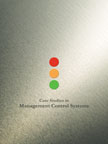Operations Management
 |
Details
Textbook:
Pages : 329;
Paperback;
210 X 275 mm approx.
Workbook:
Pages :
239; Paperback;
210 X 275 mm approx, Sample Applied Theory Questions
Courier charges extra
Pricing
Textbook Price: Rs. 900;
Workbook Price: Rs. 700;
Available only in INDIA
Detail Table of Contents
Click below to view
HTML
Enterprise Resource Planning : Chapter 15
SUMMARY:
With the growing complexity of organizations and increasing information flow between different business processes, the need to coordinate and control the flow of information to various decision centers has gained importance. ERP is the complete organization-wide system that allows coordination between various functional and geographical entities. ERP can be defined as the process that is used for the integrated management of business, through the efficient use of available resources, and with the aim of integrating information across the company.
|
|
the market. These results are achieved by reshaping corporate structure around business processes. BPR implements change by redefining companies' activities in holistic and process-oriented terms, rather than by automation of the business processes.
Business modeling is one of the first activities in any ERP project. A business model consists of an organization’s goals, objectives and strategic plans. ERP implementation is an event that involves the complete organization. There are three key issues that determine the success of the ERP implementation: functionality, technology and implementability of the solution. The steps involved in ERP implementation are: identifying the need for ERP package, evaluating the “as-is” situation of the business, decisions about the desired “would-be” situation for the business, reengineering of business processes to achieve the desired results, evaluation of available ERP packages, installation of the requisite hardware and networks, and the implementation of the ERP package.



